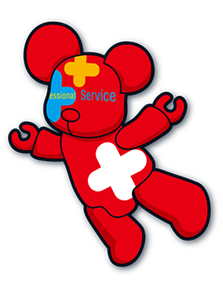Recent Trend on Simulation Training
S10.1 Recent Development of Simulation Training
S10.2 Development of Simulation Training for Healthcare Professionals
S10.3 Future Applications of Virtual Reality in Healthcare: Using Immersive Virtual Reality Mindfulness Simulations to Help Reduce Negative Emotions in Hospitalized Patients
Recent Trend on Simulation Training
S10.1 Recent Development of Simulation Training
S10.2 Development of Simulation Training for Healthcare Professionals
S10.3 Future Applications of Virtual Reality in Healthcare: Using Immersive Virtual Reality Mindfulness Simulations to Help Reduce Negative Emotions in Hospitalized Patients
Convention Hall B HA Convention 2019 hac.convention@gmail.comTechnical Issues?
If you're experiencing playback problems, try adjusting the quality or refreshing the page.
Questions for Speakers?
Use the Q&A tab to submit questions that may be addressed in follow-up sessions.








